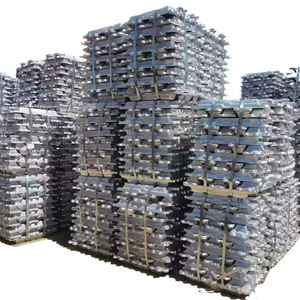All about Alcast Company
Table of ContentsAll about Alcast CompanyAlcast Company for BeginnersGetting My Alcast Company To WorkAlcast Company Things To Know Before You Get ThisAn Unbiased View of Alcast CompanyThe Ultimate Guide To Alcast Company
The subtle difference depends on the chemical content. Chemical Comparison of Cast Light weight aluminum Alloys Silicon promotes castability by lowering the alloy's melting temperature and enhancing fluidness during casting. It plays a critical role in permitting elaborate molds to be filled accurately. Furthermore, silicon adds to the alloy's strength and use resistance, making it useful in applications where resilience is critical, such as automobile parts and engine elements.It likewise enhances the machinability of the alloy, making it simpler to process right into finished items. In this method, iron contributes to the general workability of aluminum alloys.
Manganese adds to the toughness of light weight aluminum alloys and boosts workability (Aluminum Castings). It is generally utilized in wrought light weight aluminum products like sheets, extrusions, and profiles. The visibility of manganese aids in the alloy's formability and resistance to cracking during fabrication processes. Magnesium is a lightweight component that gives toughness and impact resistance to light weight aluminum alloys.
The Only Guide to Alcast Company
Zinc improves the castability of light weight aluminum alloys and aids regulate the solidification process throughout spreading. It boosts the alloy's strength and firmness.

The key thermal conductivity, tensile strength, return strength, and elongation differ. Among the above alloys, A356 has the highest possible thermal conductivity, and A380 and ADC12 have the most affordable.
Alcast Company Fundamentals Explained

In precision spreading, 6063 is appropriate for applications where elaborate geometries and top quality surface area finishes are extremely important. Examples include telecommunication rooms, where the alloy's superior formability enables streamlined and visually pleasing styles while keeping structural stability. In the Illumination Solutions sector, precision-cast 6063 parts produce sophisticated and reliable illumination components that need intricate shapes and good thermal performance.
It leads to a finer surface finish and better rust resistance in A360. The A360 shows superior elongation, making it perfect for complex and thin-walled elements. In precision spreading applications, A360 is well-suited for sectors such as Consumer Electronic Devices, Telecommunication, and Power Tools. Its boosted fluidity enables elaborate, high-precision elements like smartphone casings and interaction gadget housings.
The Ultimate Guide To Alcast Company
Its unique properties make A360 an important option for accuracy spreading in these industries, improving item resilience and high quality. aluminum foundry. Aluminum alloy 380, or A380, is a commonly utilized casting alloy with several distinct characteristics.
In precision casting, light weight aluminum 413 beams in the Customer Electronic Devices and Power Equipment sectors. It's commonly made use of to craft intricate elements like mobile phone housings, camera bodies, and power device coverings. Its precision is exceptional, with tight tolerances up to 0.01 mm, guaranteeing flawless product assembly. This alloy's premium deterioration resistance makes it an excellent choice for outdoor applications, making certain durable, durable products in the mentioned sectors.
The Only Guide to Alcast Company
The aluminum alloy you choose will significantly impact both the casting process and the buildings of the final item. Because of this, you should make your decision meticulously and take an informed method.
Establishing one of the most ideal aluminum alloy for your application will imply evaluating a large range of attributes. These relative alloy attributes adhere to the North American Pass Away Spreading Organization's guidelines, and we have actually split them into two classifications. The very first classification addresses alloy attributes that impact the production process. The second covers features affecting the buildings of the end product.
Alcast Company Things To Know Before You Buy
The alloy you select for die spreading directly influences a number of elements of the spreading process, like how very easy the alloy is to work with and if it is susceptible to casting defects. Hot cracking, also understood as solidification cracking, is a regular die casting issue for light weight aluminum alloys that can cause internal or surface-level splits or splits.
Particular aluminum alloys are much more prone to warm breaking than others, and your choice needs to consider this. It can harm both the cast and the die, so you need to look for alloys with high anti-soldering residential or commercial properties.
Rust resistance, which is currently a significant attribute of aluminum, can vary significantly from alloy to alloy and is a vital particular to take into consideration depending on the environmental look at this site problems your item will be subjected to (aluminum metal casting). Wear resistance is another residential property frequently sought in light weight aluminum items and can set apart some alloys